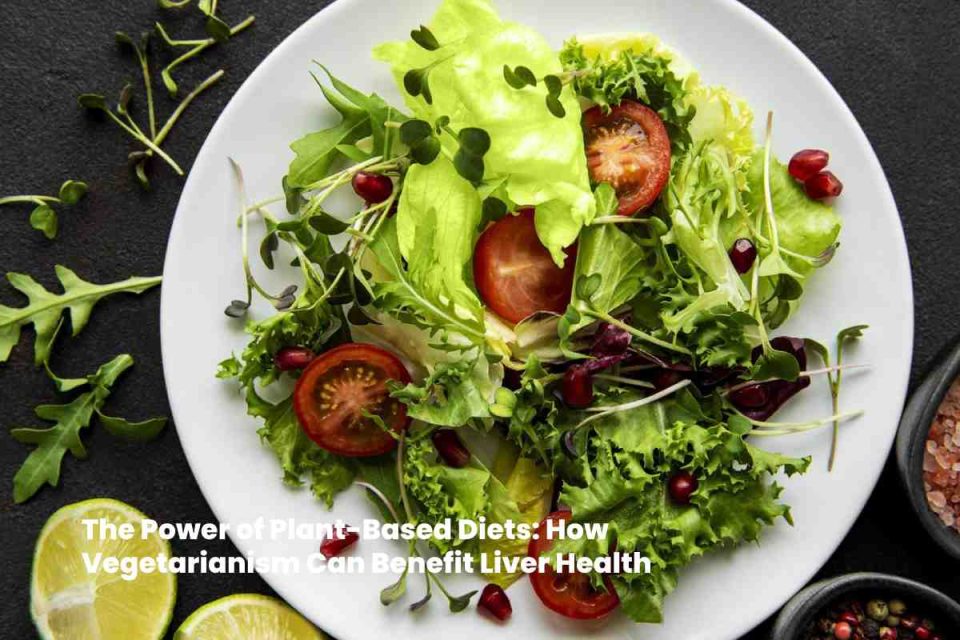In recent years, plant-based diets have gained significant attention for their numerous health benefits. Among these advantages is the positive impact that vegetarianism can have on liver health. This article will delve into the ways a plant-based diet can support liver function, help prevent liver disease, and promote overall wellness.
Table of Contents
Liver Function and Its Importance to Health
The liver plays a vital role in maintaining overall health. As one of the largest organs in the body, it performs a variety of functions, including detoxification, protein synthesis, and the production of bile, which aids in digestion.
A healthy liver is essential for optimal metabolic function and helps prevent the development of chronic diseases. Given its importance, maintaining liver health should be a priority for everyone.
The Link Between Diet and Liver Health
Dietary habits significantly impact liver health. Consuming excessive amounts of unhealthy fats, sugars, and alcohol can lead to liver damage, inflammation, and the development of conditions such as non-alcoholic fatty liver disease (NAFLD) and cirrhosis.
Conversely, a balanced and nutrient-rich diet can support liver function, help prevent liver disease, and promote overall health.
Plant-Based Diets: A Path to Improved Liver Health
Plant-based diets, such as vegetarianism and veganism, emphasize the consumption of fruits, vegetables, legumes, whole grains, nuts, and seeds.
These nutrient-dense foods provide essential vitamins, minerals, antioxidants, and fiber, all of which can benefit liver health in several ways:
1. Reducing Inflammation and Oxidative Stress
Plant-based diets are rich in anti-inflammatory compounds and antioxidants, which help to combat inflammation and oxidative stress in the liver.
Inflammation and oxidative strain are known to contribute to liver damage and the development of liver diseases. By consuming a diet rich in fruits and vegetables, you can help protect your liver from these harmful processes.
2. Promoting a Healthy Body Weight
Obesity is a major risk factor for the development of liver diseases, particularly NAFLD. Plant-based diets are typically lower in calories and unhealthy fats compared to traditional Western diets, making it easier to maintain a healthy body weight.
By achieving and maintaining a healthy body weight, you can reduce the strain on your liver and lower the risk of liver disease.
3. Supporting Detoxification
The liver is liable for detoxifying harmful substances, such as alcohol, drugs, and environmental toxins. Plant-based diets are naturally low
in processed foods and high in fiber, which helps to promote regular bowel movements and support the liver’s detoxification processes.
Taking a diet rich in plant-based foods can help your liver function more efficiently and effectively.
4. Protecting Liver Cells
Plant-based diets are rich in phytochemicals, such as polyphenols, which can help protect liver cells from damage caused by toxins, inflammation, and oxidative stress. These protective compounds can help prevent liver injury and support overall liver health.
Transitioning to a Plant-Based Diet for Liver Health
If you’re considering adopting a plant-based diet to support your liver health, start by gradually incorporating more fruits, vegetables, whole grains, legumes, nuts, and seeds into your meals.
Experiment with new recipes and ingredients to find delicious, satisfying plant-based dishes that you enjoy. Additionally, consider consulting with a registered dietitian or nutritionist to ensure you’re meeting your nutritional needs while following a plant-based diet.
If you’re curious about how to recognize improvements in your liver health as you transition to a plant-based diet, click here to read an informative blog post on signs your liver is healing.
Conclusion
In conclusion, adopting a plant-based diet offers a multitude of benefits for liver health and overall wellness.
Vegetarianism, with its emphasis on nutrient-dense fruits, vegetables, whole grains, legumes, nuts, and seeds, has the potential to reduce inflammation, oxidative stress, and liver cell damage while promoting healthy body weight and supporting detoxification processes.
By gradually incorporating more plant-based foods into your diet and seeking professional guidance from a registered dietitian or nutritionist, you can take a proactive approach to protect your liver and promote long-term health.
As more individuals become aware of the power of plant-based diets, it is likely that we will see a continued increase in interest and adoption of vegetarianism and veganism for the benefit of liver health and overall well-being.

